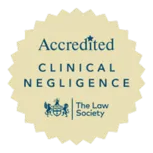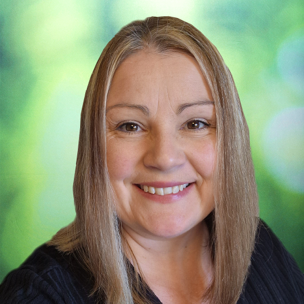What is a brain tumour?
A brain tumour is a growth of cells in the brain that multiplies in an abnormal, uncontrollable way. Tumours can grow in any part in the brain and present as an array of different symptoms depending on their position in the brain.
There are two types of brain tumours:
- Non-cancerous brain tumours (benign)- these are low grade tumours (1 and 2) which means they grow slowly and are less likely to return after treatment.
- Cancerous brain tumours (malignant)- these are high grade tumours (3 and 4) which means they have grown in the brain or possibly spread elsewhere and are likely to return after treatment.
Each year around 5,800 people are diagnosed with a malignant brain tumour within the UK, and around 6,500 are diagnosed with a benign or unknown brain tumour, too. Sadly, brain tumours are more common as you get older, with 25 out of every 100 people being diagnosed with a brain or spinal cord tumour in the UK every year who are over 75.
What are the symptoms of a brain tumour?
The symptoms vary depending on what part of the brain the tumour grows in. But the most common symptoms are:
- Headaches
- Nausea, vomiting and drowsiness
- Mental or behavioural changes such as memory loss or changes in personality
- Vision or speech problems
- Seizures (fits)
For a full list of symptoms, visit Brain Tumour Research.
Brain tumours on average reduce life expectancy by 27 years, which is higher than any other cancer. Sometimes you may not have any symptoms to begin with or they can gradually develop and/or worsen over time. If you experience any concerning symptoms, make sure you visit your GP. If your GP suspects the presence of a brain tumour they will refer you to a Neurologist for further tests, as the most effective way to determine whether a tumour is present is to perform a CT or MRI scan.
Brain tumour misdiagnosis claims
Every year more than 12,300 people in the UK are diagnosed with a primary brain tumour, of which half are cancerous. This diagnosis alone can be life changing, but a delayed cancer diagnosis or misdiagnosis can lead to incorrect or delayed treatment and a reduced chance of recovery.
If we can prove that your brain tumour wasn’t diagnosed early enough or you were given the wrong diagnosis, you could claim cancer misdiagnosis compensation which could help you to access specialist treatment not available on the NHS.
Examples of misdiagnosis negligence can include:
- The failure of your GP to investigate and refer you for further tests when you are presenting brain tumour symptoms
- Failure to refer you to an appropriate specialist
- Misinterpreting x-rays, scans, tissue samples
- Misdiagnosing the brain tumour as another condition, resulting in the wrong or unnecessary symptoms
- The medical care received was below acceptable standards
If you, or a loved one have been affected by a delayed diagnosis or misdiagnosis, our Medical Negligence solicitors can help you claim compensation. Get in touch today, and we will offer you a free case assessment to discuss your case. Ask us if we can handle your claim on a No Win, No Fee basis.
Can Cancer be Misdiagnosed?
Cancer Research estimates that 1 in 2 people in the UK will be diagnosed with cancer in their lifetime. Macmillan reports that survival rates are improving, with early diagnosis giving patients the best chance of living for longer or making complete recoveries.
But while most cancer patients have positive care experiences in the UK, cancer still often goes undiagnosed or is misdiagnosed. Incorrect or delayed treatment can impact on your chances of survival and, if due to a medical mistake, could give you grounds to make a cancer negligence claim.
Is There a Time Limit for Misdiagnosis or Late Cancer Diagnosis Claims?
You’ll usually have three years from when the negligence happened or from when you became aware of it to start your claim. This time limit may extend in certain situations:
- If a person suffers from a temporary mental disability, the limit doesn’t begin until they regain mental capacity. The time will not restart, if they never regain capacity.
- If you’re claiming on behalf of a child, the limit doesn’t start until their 18th birthday. This person can then claim on their own behalf until their 21stbirthday
- If you’re claiming following the death of a loved one, you have three years from the date of their death
Although the Courts have wider powers to alter the time limits, they rarely do. This makes it best to seek legal advice as soon as possible if you think you have grounds for brain tumour misdiagnosis compensation.
What can I claim compensation for?
Receiving compensation may not be your first thought. But it may help you access specialist treatment that is not available on the NHS.
Your brain tumour misdiagnosis compensation will be calculated based on factors including:
- Pain and suffering, including psychological damage
- Loss of past and future earnings
- Cost of previous and ongoing care and assistance, including prescription charges, medical fees, care aids and appliances
- Travel and accommodation expenses
It could also help with:
- Loss of earnings
- Rehabilitation or home adaptions
- Travel costs
- Necessary care and assistance
How can Simpson Millar help?
Our Medical Negligence Lawyers have years of experience helping people claim compensation for delayed or misdiagnosis. Our specialist team understand that taking legal action can be daunting, but we are here for you every step of the way.
We understand compensation cannot change the past or what you have been through but an apology and/or admission and compensation which will improve your quality of life and afford you access to the right medical treatment, will relieve some of the pressure.
Call us today on 0800 260 5010 and our team will offer you a free consultation to discuss your case and we will let you know if you have a claim.











